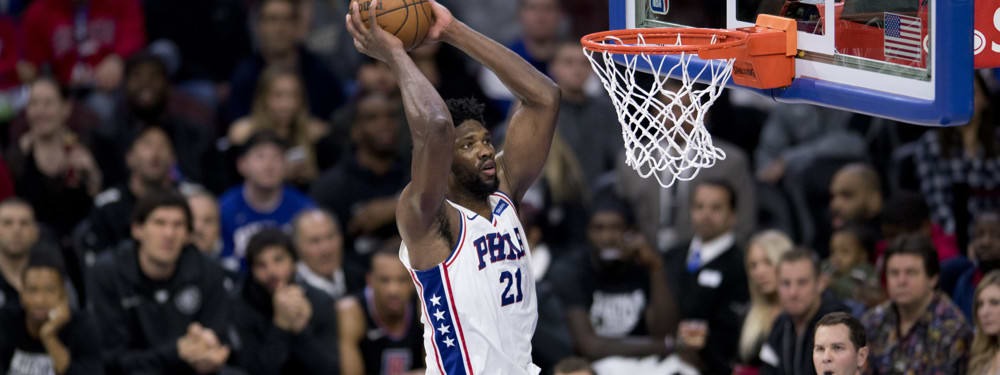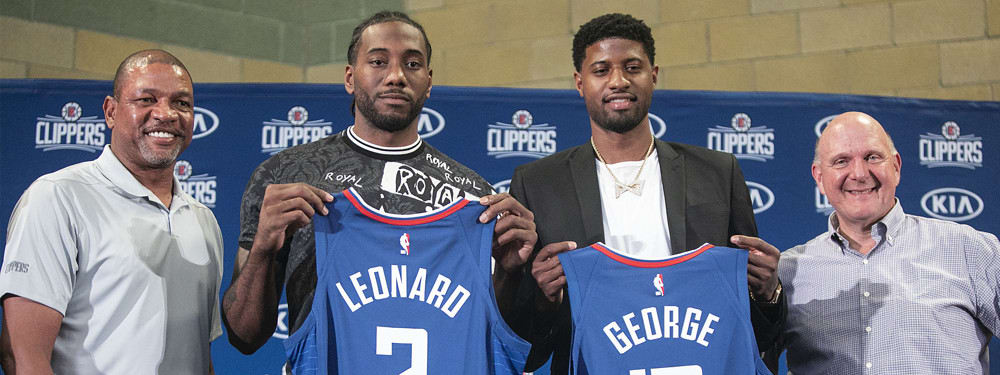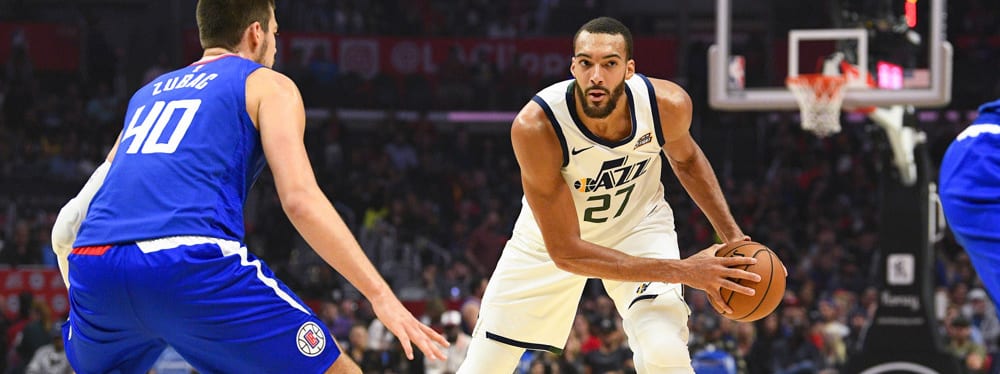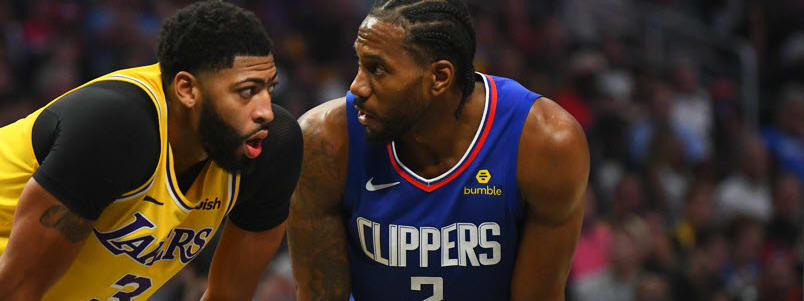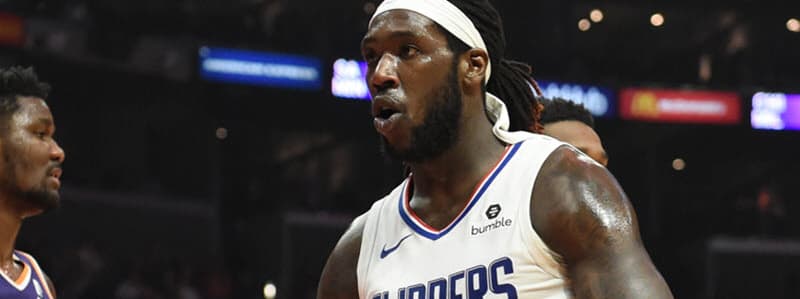Recent RotoWire Articles Featuring Joakim Noah
See More
Noah opened the 2016-17 campaign as the Knicks' starting center, but hamstring and knee injuries ultimately cut his season short. While he started every contest he played in, he was still limited to just 46 games, which marked back-to-back injury-plagued seasons following just 29 games played in 2015-16. Prior to the injuries, Noah really wasn't seeing that big of a workload anyway, averaging just 22.1 minutes. That translated to 5.0 points, 8.8 rebounds and 2.2 assists, while shooting 49 percent from the field. Looking ahead to the 2017-18 season, Noah will already be sidelined for the first 12 games of the season on suspension following a violation of the NBA's anti-drug policy. Adding on to Noah's concerns is the strong play of Willy Hernangomez, who should open the year in Noah's place at center. At this point, it seems possible that Noah will ultimately be stuck on the bench even when he's cleared, though the fact that he's in just the second year of a four-year, $72.6 million contract could mean otherwise. Either way, Noah's early season suspension and the rise of Hernangomez are all concerns for Noah's value and at best, he'll be a late round selection for his rebounding numbers in deeper leagues.
A favorite of former Bulls coach Tom Thibodeau for his defensive intensity, Noah wasn't nearly as welcomed last season by first-year head man Fred Hoiberg, whose desire to implement a more up-tempo, space-oriented offensive attack made Noah an awkward fit. After losing his spot on the top unit to Nikola Mirotic in training camp, Noah would stick in a bench role for most of the year, starting in only two games and averaging 21.9 minutes per game, his fewest since his rookie year. While he remained a force on the defensive end (8.8 boards and 1.0 block per game) and a skilled passer (3.8 assists per game), Noah's scoring and shooting sunk to career-worst levels. The 6-foot-11 center averaged just 4.3 points on a miserable 38.3 percent shooting from the field and 48.9 percent shooting from the free-throw line. Noah looked poised to turn the corner after turning in a 21-point outing Dec. 19, but just one game later, he suffered a slight tear in his left shoulder that would sideline him for three weeks. He returned in January, but again fell victim to injury shortly thereafter, dislocating the same shoulder and requiring season-ending surgery after just 29 games played. Following the injury-plagued campaign, Noah never seriously considered re-signing with the Bulls in free agency and instead agreed to a deal with the Knicks, who signed him to a four-year, $72 million deal. With his new squad, Noah is locked in as the starting center and is expected to provide the team with some toughness on the interior, freeing up promising second-year power forward Kristaps Porzingis to focus his efforts on the offensive end. When he's on the floor, Noah, who said in August that he's fully recovered from the surgery, should remain a strong source of rebounds, blocks and assists, and figures to see his field-goal percentage rebound at least a little bit after it sunk to an abnormally low level the year before. That being said, Noah's lack of durability and declining impact as a scorer have really damaged his fantasy value the last two seasons, and could both remain issues as he approaches his 32nd birthday in February.
Noah entered last season coming off of an All-Star campaign and winning the Defensive Player of the Year Award. However, he had offseason knee surgery and was on a minutes restriction for a good part of the season. Noah finished the season averaging 7.2 points, 9.6 rebounds, 4.7 assists, 0.7 steals, and 1.1 blocks in 31 minutes per game. His percentages took a hit as well as he shot only 45 percent from the field and 60 percent from the charity stripe. The emotional leader of the team, Noah often looked frustrated and didn't provide the energy everyone has come accustomed to. He is an excellent passer and provided a lot of assists again from the center position last season, but he didn't seem to mesh with newly-acquired Pau Gasol. Noah enters this season with a full summer of rest and looking to get back to his All-Star ways, but he'll have to do that under new coach Fred Hoiberg. Noah was a favorite of former coach Tom Thibodeau and played big minutes under him when healthy. Hoiberg is expected to run a more offensive-minded system, which might not fit Noah's style very well. If Hoiberg decides to go small, it's possible Noah may find himself coming off the bench.
By this point, Noah has solidified himself as one of the most productive all-around big men in the NBA. The defensive stalwart is entering his eighth season in the NBA. Last season, Noah averaged 12.6 points, 11.3 rebounds, 5.4 assists, 1.2 steals, and 1.5 blocks in 35 minutes per game while playing in 80 contests. The center was honored as the Defensive Player of the Year and received his second All-Star nod. Noah upped his assist total significantly for the second straight season, defining himself as one of the best passing big men in the NBA. With Derrick Rose returning, Noah won't be relied upon to set up his teammates as much, but the increase in assists is encouraging, nonetheless. The knock on Noah has always been his ability to score around the basket, and there's little reason to believe that he'll ever develop into a threatening offensive player. The center shot just 48 percent from the field last season, which ranked fourth-to-last among qualified centers. Don't expect his production on the glass to change dramatically, despite the departure of Carlos Boozer. Boozer and his replacement, Pau Gasol, had nearly identical rebound and usage rates last season. If energy and passion were measured in fantasy, Noah would be among the elite. Unfortunately, his contributions to the Bulls' success often doesn't appear in the box score.
By this point, Noah has solidified himself as one of the most productive all-around big men in the NBA. The defensive stalwart is entering his eighth season in the NBA. Last season, Noah averaged 12.6 points, 11.3 rebounds, 5.4 assists, 1.2 steals, and 1.5 blocks in 35 minutes per game while playing in 80 contests. The center was honored as the Defensive Player of the Year and received his second All-Star nod. Noah upped his assist total significantly for the second straight season, defining himself as one of the best passing big men in the NBA. With Derrick Rose returning, Noah won't be relied upon to set up his teammates as much, but the increase in assists is encouraging, nonetheless. The knock on Noah has always been his ability to score around the basket, and there's little reason to believe that he'll ever develop into a threatening offensive player. The center shot just 48 percent from the field last season, which ranked fourth-to-last among qualified centers. Don't expect his production on the glass to change dramatically, despite the departure of Carlos Boozer. Boozer and his replacement, Pau Gasol, had nearly identical rebound and usage rates last season. If energy and passion were measured in fantasy, Noah would be among the elite. Unfortunately, his contributions to the Bulls' success often doesn't appear in the box score.
For the third consecutive season, Noah put together steady double-double production for the Bulls. The 27-year-old center finished the 2011-12 campaign with averages of 10.2 points, 9.8 rebounds and 1.4 blocks while playing 30 minutes per game. He was healthy for the regular season – appearing in 64 of 66 games – but suffered an ankle injury during the Bulls’ first-round loss to the Sixers in the playoffs. The injury forced Noah to miss the final three games of the series and also put him on the shelf for the Summer Olympics, where he was supposed to play for France. The extra time off this summer is expected to allow Noah to make a full recovery before the start of the 2012-13 season. Once the season gets underway, Noah is expected to play the same energy role that we’ve seen from him in years past. The only difference this time around is the Bulls could ask Noah to assume a slightly bigger offensive load, as Derrick Rose (knee) is hurt and Carlos Boozer is on the decline. While Noah should be valued at a price close or equal to the past two years, there is potential for his production to grow slightly, so take that into account when targeting him.
Prior to a thumb injury in mid-December, Noah was on pace for a career season. The 26-year-old center posted averages of 14.0 points, 11.7 rebounds 2.7 assists, 1.2 steals and 1.6 blocks through the first 24 games. After returning from a two-month absence, Noah’s numbers dropped to 9.3 points, 9.0 rebounds, 1.8 assists, 0.8 steals and 1.4 blocks. Injuries are a concern with Noah going forward, as he has missed 52 out of 164 games over the past two seasons. None of his previous injuries appear to have potential for a lingering impact, but his propensity to get nicked up needs to be taken into account when targeting the Bulls big man. When healthy, though, Noah has proven to be a quality double-double option in fantasy. His offensive game isn’t pretty to watch, but he was surprisingly efficient (52.5 FG, 73.9 FT, 1.9 TO) last year and should be able to provide double-digit scoring going forward. Pair that with his rebounding and defensive production, and you have a solid all-around fantasy option at center that can be selected in the middle rounds of your draft.
Despite modest scoring (10.7 ppg), Noah was one of the biggest steals in fantasy drafts last year, thanks to 11.0 rebounds, 2.1 assists, 0.5 steals and 1.6 blocks per game with solid shooting percentages (50.4 FG%, 74.4 FT%). But don't let those numbers fool you � there was a two-month stretch over February and March where a plantar fasciitis injury not only caused him to miss games but also deeply hampered his performance when on the court � he averaged just 16 minutes and five rebounds over this 12-game span. Bottom line, he might be Dwight Howard's biggest threat to lead the NBA in rebounding given a full year of health (though the addition of Carlos Boozer could admittedly lead to fewer boards). Some thought Noah was a stretch as a top-10 pick in the 2007 draft, but he's proven the doubters wrong, as he's a solid defender and remains an excellent passer.
Noah’s strength lies in the energy he exudes onto the game. Unfortunately being an “energy” player doesn’t always translate into solid production, especially on the offensive end of the court. His jump shot is atrocious, but his tenacity for offensive rebounds gives him extra offensive possessions. While his offensive game lacks polish, and he lacks a reliable outside shot, Noah plays intelligently. He knows what he does well and efficiently uses those tools to create his production. Only 6 percent of his shot attempts were from the outside. The other 94 percent all came in the paint. Noah’s a gritty player whose energy and passion make him an intimidating defensive presence. The division of playing time between Tyrus Thomas, Brad Miller and Noah will significantly impact Noah’s production, but Noah’s coming out party in the playoffs last year has most likely solidified a starting role for him this season. His floor time jumped from 31 mpg in April to 38 mpg in the playoffs. Noah capitalized on the extra run and recorded dominant per-game rebounding (13.1) and block (2.1) numbers in the Bulls seven-game series with the Celtics. Noah is effective and produces without the basketball, an invaluable commodity when surrounded all of the scoring threats the Bulls have on their roster. He has low turnover numbers (1.03) and makes a respectable number of his free throw attempts (68%) for a big man.
Noah fell into a great situation with the Bulls, a perimeter-based team with a need for a 7-footer that could defend. After Ben Wallace was traded Noah took full advantage of his increased opportunity to average more than nine points, seven boards, 51 percent field-goal shooting and more than a block and a steal per in 31 games as a starter. Noah is a high-energy player on both sides of the ball, disrupting passing lanes and blocking shots on defense while diving to the rim and crashing the boards on offense. He’s also a surprisingly good passer for a big man, having been a guard in high school, so he should eventually improve on his 1.1 apg.
Noah was a great college player, but he’ll face significant challenges before he can become a fantasy relevant pro. In a best case scenario, Noah projects as an energy player that could potentially produce double-doubles with solid defensive stats and maybe even a few assists. In reality, Noah was drafted to a Bulls team that already has talented defensive/energy players at his position in Ben Wallace and Tyrus Thomas, and he missed summer-league play to rehab a slight tear in his rotator cuff. Moreover, his unimposing physique leads some NBA observers to believe that he’ll have trouble with the transition to the league. Look for Noah to struggle early, but if he does get enough minutes he seems to have the mindset, length and wiry quickness to overcome his smaller frame and become an effective pro. He could be a nice rebounds/blocks role player later in the season.








